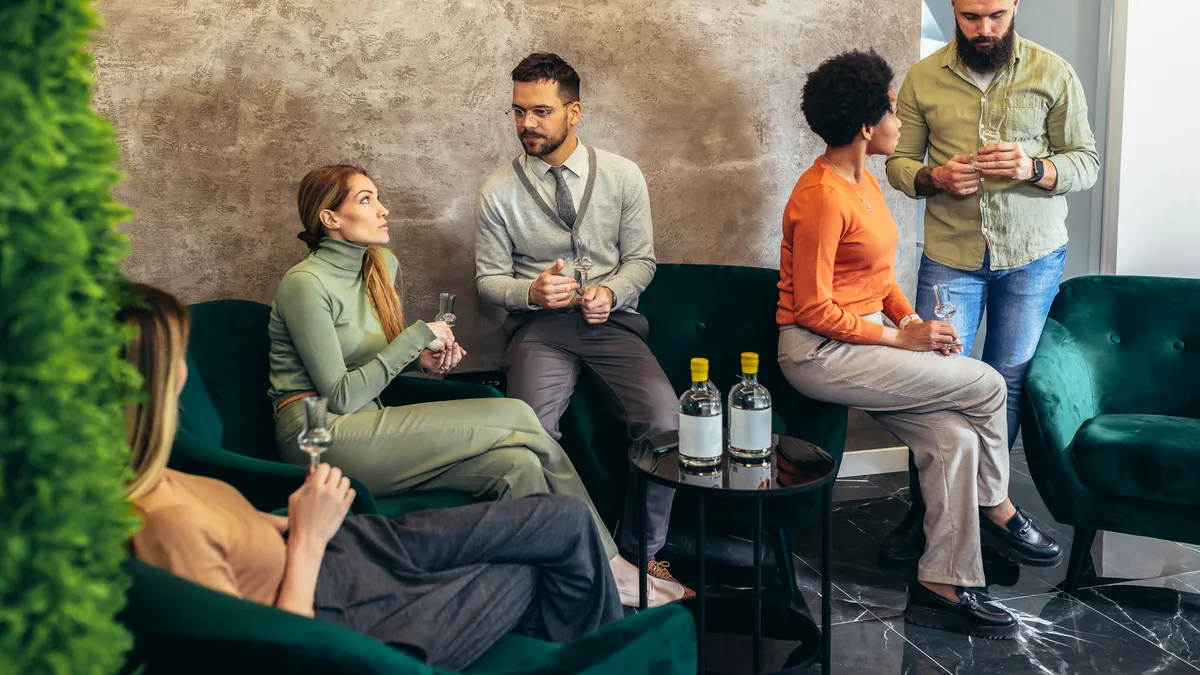Once more, Dry January is upon us.
Founded in 2013 by British nonprofit organization Alcohol Change, the awareness month, which encourages going 31 days alcohol-free, provides employers another opportunity to step up to the plate to support diverse talent populations year-round.
The road to sobriety can be a deeply personal experience — just like age, race, sexuality, place on the disability spectrum and gender. Holding space for sober or sober-curious people is a veritable form of inclusion and belonging work, but this “invisible” population is often left out of diversity conversations.
To be fair, they are increasingly visible, as the nonalcoholic beverage market continues to grow year over year. In Nielsen IQ’s most recent data — gathered from August 2021 to August 2022 — researchers noted about a 20% increase in nonalcoholic beverage sales. “There was a time when a few beers, shots or cocktails were a staple of social gatherings, but in recent years, non-alcoholic beverage trends have been rising,” researchers said in a statement regarding the data.
Nonalcoholic beer increased about 20% in sales year over year. Nonalcoholic wine sales increased about 14% and sales of zero-proof spirits increased about 89%. NielsenIQ also noted that the sale of alcoholic beverages lost some of its footing. For context, nonalcoholic beer, wine and spirits only account for a small share of beverages among “alcohol” sales: 0.47%. Researchers observed that “ this is still a small figure, [but] this percentage share has steadily grown over the past five years.”
How employers can support Dry January
In sharing their data, NielsenIQ researchers noted a trend of sober curiosity, highlighting that Generation Z tends to be “less interested in drinking alcohol than previous generations.” Still, they nodded to a broader movement where “more people from every age and stage of life [are] trying to take better care of themselves.”
With the awareness month being 11 years in the running, a wealth of resources exist. Alcohol Change offers a host of best practices. For example, the organization warns of the harm of halting alcohol consumption suddenly if one is alcohol-dependent. Harvard Medical School emphasizes the importance of individuals finding nonalcoholic beverages, such as mocktails, that can stand in for beer, wine or liquor.
Concerning workplace accountability, some advocacy organizations offer workplace trainings and e-learning courses on the subject.
How employers can be sober-friendly year-round
To further include sober or sober-curious workers, employers can eliminate opportunities for “othering” or exclusion.
A substance recovery expert previously spoke to HR Dive about how office parties can be this flash point; an attendee holding a bottle of water may invite uncomfortable questions, whereas a mocktail would not. Another expert told HR Dive that creating a culture where workers do not pressure each other to drink is also key.













